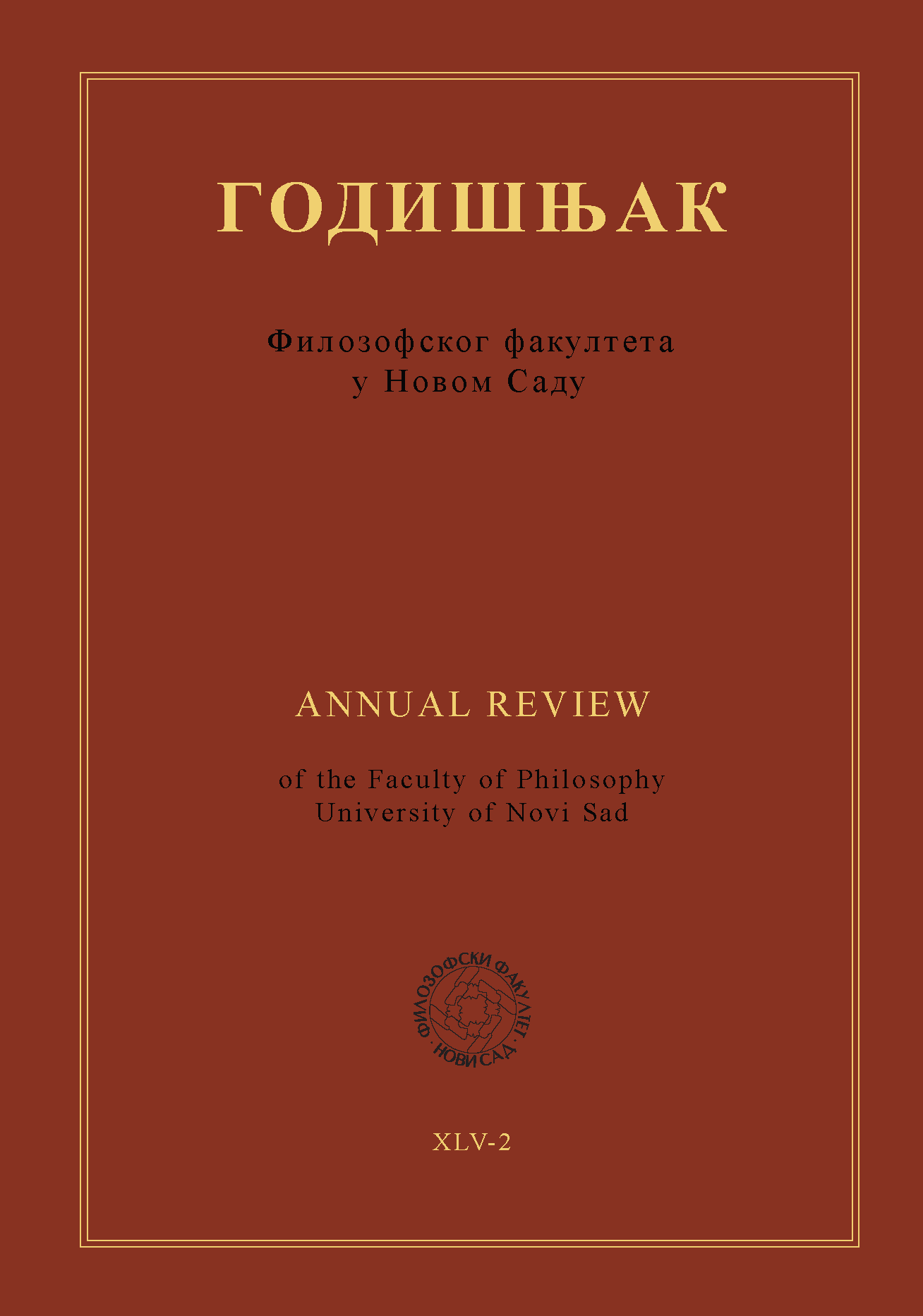TEORIJSKI I PRAKTIČNI ZNAČAJ SLOŽENIH MODELA ZASNOVANIH NA ANALIZAMA MODERACIJE I MEDIJACIJE
Главни садржај чланка
Сажетак
Most statistical methods applied in the social sciences involve testing direct relationships among variables. However, since psychology deals with complex phenomena, this corpus of methods is not sufficient to understand the mechanisms and conditions under which certain direct relationships apply. Moderation and mediation analyzes were the first step towards understanding the more complex relationships among variables. The analysis of mediation answers the question of “how” and “why”, or through what mechanisms a particular relation is realized, while the analysis of moderation offers the answer to the question of “when”, “for whom” and “under what conditions” a particular relation between the predictor and criterion variables applies. Although the increasing use of moderation and mediation analyzes has led to advances in understanding the phenomena addressed by psychology, complex psychological theories require testing more complex models based on these analyzes. Accordingly, this paper will outline theoretical rationales for using models such as moderated mediation, moderation mediation, parallel and serial mediation, three-way interaction, and nonlinear moderation. This paper focuses on explaining the conceptual differences between these complex models, through demonstrating the need to use these models on examples of different psychological theories.
Downloads
Детаљи чланка
Референце
Baron, R. M., & Kenny, D. A. (1986). The moderator-mediator variable distinction in social psychological research: Conceptual, strategic, and statistical considerations. Journal of personality and social psychology, 51(6), 1173-1182.
Busemeyer, J. R., & Jones, L. E. (1983). Analysis of multiplicative combination rules when the causal variables are measured with error. Psychological Bulletin, 93(3), 549-562.
Cohen, J., & Cohen, P. (1983). Applied multiple regression/correlation analysis for the behavioral sciences (2nd ed.). Hillsdale, NJ: Erlbaum.
Cohen, J., Cohen, P., West, S. G., & Aiken, L. S. (2003). Applied multiple regression/ correlation analysis for the behavioral sciences (3rd ed.). Mahwah, NJ: Erlbaum.
Edwards, J. R., & Lambert, L. S. (2007). Methods for integrating moderation and mediation: a general analytical framework using moderated path analysis. Psychological methods, 12(1), 1-22.
Frazier, P. A., Tix, A. P., & Barron, K. E. (2004). Testing moderator and mediator effects in counseling psychology research. Journal of counseling psychology, 51(1), 115-134.
Fredrickson, B. L. (2001). The role of positive emotions in positive psychology: The broaden-and-build theory of positive emotions. American psychologist, 56(3), 218-226.
Garmezy, N., Masten, A. S., & Tellegen, A. (1984). The study of stress and competence in children: A building block for developmental psychopathology. Child Development, 55(1), 97-111.
Graff, L. A., Walker, J. R., Clara, I., Lix, L., Miller, N., Rogala, L., ... & Bernstein, C. N. (2009). Stress coping, distress, and health perceptions in inflammatory bowel disease and community controls. The American journal of gastroenterology, 104(12), 2959-2969.
Hammen, C. (2005). Stress and depression. Annu. Rev. Clin. Psychol., 1, 293-319.
Hayes, A. F. (2009). Beyond Baron and Kenny: Statistical mediation analysis in the new millennium. Communication monographs, 76(4), 408-420.
Hayes, A. F. (2012). PROCESS: A versatile computational tool for observed variable mediation, moderation, and conditional process modeling.
Hayes, A. F. (2013). Introduction to mediation, moderation, and conditional process analysis: A regression-based approach. NY: Guilford Press.
James, L. R., & Brett, J. M. (1984). Mediators, moderators, and tests for mediation. Journal of Applied Psychology, 69(2), 307-321.
Jose, P. E. (2013). Doing statistical mediation and moderation. NY: Guilford Press.
Judd, C. M., & Kenny, D. A. (1981). Process analysis estimating mediation in treatment evaluations. Evaluation review, 5(5), 602-619.
Kolko, D. J., Brent, D. A., Baugher, M., Bridge, J., & Birmaher, B. (2000). Cognitive and family therapies for adolescent depression: Treatment specificity, mediation, and moderation. Journal of consulting and clinical psychology, 68(4), 603-614.
Kraemer, H. C., Stice, E., Kazdin, A., Offord, D., & Kupfer, D. (2001). How do risk factors work together? Mediators, moderators, and independent, overlapping, and proxy risk factors. American Journal of Psychiatry, 158, 848–856.
Li, L., Lee, S. J., Thammawijaya, P., Jiraphongsa, C., & Rotheram-Borus, M. J. (2009). Stigma, social support, and depression among people living with HIV in Thailand. AIDS care, 21(8), 1007-1013.
Lindley, P., & Walker, S. N. (1993). Theoretical and methodological differentiation of moderation and mediation. Nursing Research, 42(5), 276-279.
Masten, A. S., Cutuli, J. J., Herbers, J. E., & Reed, M. G. (2009). 12 Resilience in Development. Oxford handbook of positive psychology, 117-131.
McClelland, G. H., & Judd, C. M. (1993). Statistical difficulties of detecting interactions and moderator effects. Psychological Bulletin, 114(2), 376-390.
Međedović, J. (2013). Analiza interakcija prediktora u modelima linearne regresije: primer stranačke evaluacije. Primenjena psihologija, 6(3), 267-286.
Peyrot, M. (1996). Causal analysis: Theory and application. Journal of Pediatric Psychology, 21(1), 3-24.
Preacher, K. J., Rucker, D. D., & Hayes, A. F. (2007). Addressing moderated mediation hypotheses: Theory, methods, and prescriptions. Multivariate behavioral research, 42(1), 185-227.
Rose, B. M., Holmbeck, G. N., Coakley, R. M., & Franks, E. A. (2004). Mediator and moderator effects in developmental and behavioral pediatric research. Journal of Developmental & Behavioral Pediatrics, 25(1), 58-67.
Wegener, D. T., & Fabrigar, L. R. (2000). Analysis and design for nonexperimental data: Addressing causal and noncausal hypotheses. In H. T. Reis & C. M. Judd (Eds.), Handbook of research methods in social and personality psychology (pp. 412-450). New York: Cambridge University Press.




